Edouard Philippe comes to Bamako renew the support of France to the Malian government. Military support, but also economic. Agreements of several tens of millions of euros should be signed this Saturday, especially in the key sector of cotton.
For his first trip abroad since the beginning of the yellow vests crisis, Edouard Philippe has planned a stage « great national debate ». This Saturday afternoon, he will meet French expatriates from Bamako and will receive the conclusions of the debate organized earlier this month.
Edouard Philippe repeated it before landing in Bamako, the fight against terrorism is far from over. « The task is still long, » said Edouard Philippe on the plane that takes him to Bamako. « The fight against terrorism in the Sahel requires determination, endurance and humility », still tempered the head of government. And if the Prime Minister claims « results, » he expects to repatriate soon the French troops of Operation Barkhane.
France has signed Saturday for 85 million euros of new financial aid to Mali, pledging to double its development aid effort quickly to the Sahel country facing the jihadist threat.
One year after the G5 Sahel donors’ meeting, the African regional force is still waiting for the hundreds of millions of euros pledged by the international community. « The rise in power continues, but much remains to be done, » recognizes the firm of Edouard Philippe. His visit to Bamako will be an opportunity to launch a new call.
Also economical support
The goal for Paris is to attract private investment knowing that France, the largest European donor, has already committed 700 million euros over the past ten years. Edouard Philippe will also visit a water treatment plant near Bamako, a project supported by AFD, the French Development Agency.
Support is economic, but also political. The Prime Minister met Saturday with his Malian counterpart Soumeylou Boubèye Maïga and the president, IBK with the message: « Support and understanding », while the Malian executive faces a social grumbling in the street.
The French Development Agency (AFD) « should double » its contributions to Mali « in the coming years, » said Prime Minister Edouard Philippe at a press conference. The agreements were signed at the Bamako Primature at a joint ceremony with his counterpart Soumeylou Boubèye Maïga.
« It is important to fight to win the war, but it is also important to build peace and prosperity », said before the ceremony Mr. Philippe, who was going to visit Gao at the end of the day ( north) with French troops, emphasizing the « two legs » of security and development.
In detail, this is a sovereign loan of 50 million euros for drinking water projects in five cities in the center of the country (Koulikoro, Ségou, San, Mopti-Sévaré and Bandiagara) which has to feed 500,000 people.
Also validated aid of 10 million euros for the Malian Treasury « to cover urgent cash needs », a grant of 10 million for « modernization of public finances » Malian, and finally 15 million for vocational training intended for 7,500 Malians.
The security deterioration in Mali since 2012 has burdened the already thin fiscal resources of the country.
Over the last ten years, France has provided 700 million euros in development aid to Mali, according to figures provided by Matignon, and the annual rate is rising sharply as Paris strengthens its aid to the Sahelian states.
Some private projects were also presented, including a commitment to purchase 3,000 tonnes of cotton from the French retail giant Carrefour to « structure the organic cotton sector in Mali », once again the leading African cotton producer.
Earlier in the morning, on the outskirts of Bamako, Edouard Philippe inaugurated a large pumping station on the Niger River, which is to supply a water treatment plant scheduled to open in mid-2019. This investment of 500 million euros, financed by international donors including France, must serve one million inhabitants of the Malian capital.
Views: 0


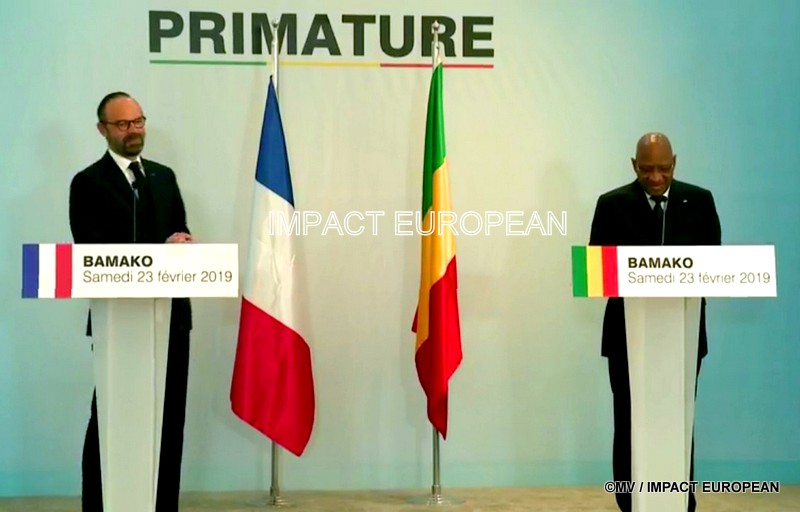
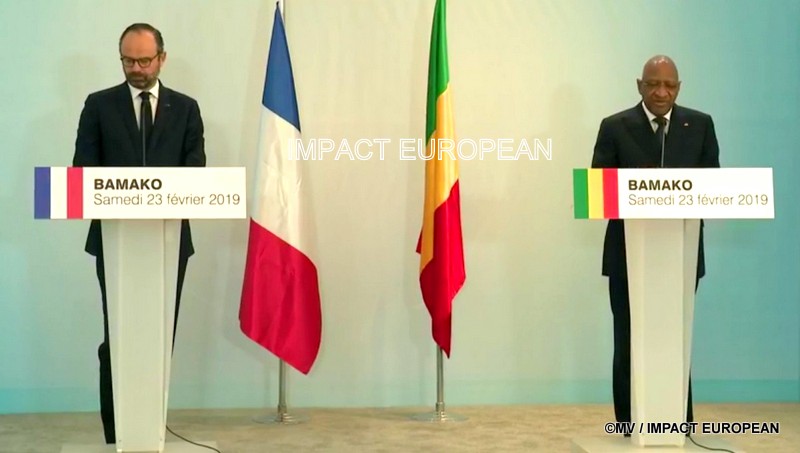
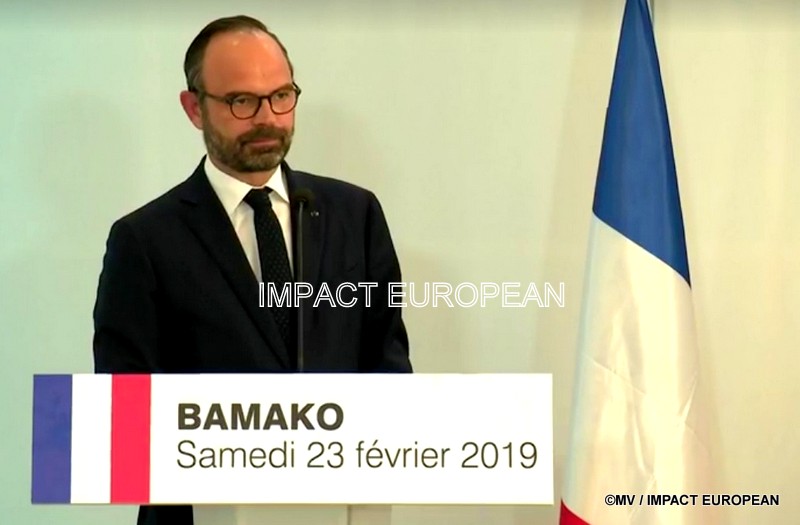
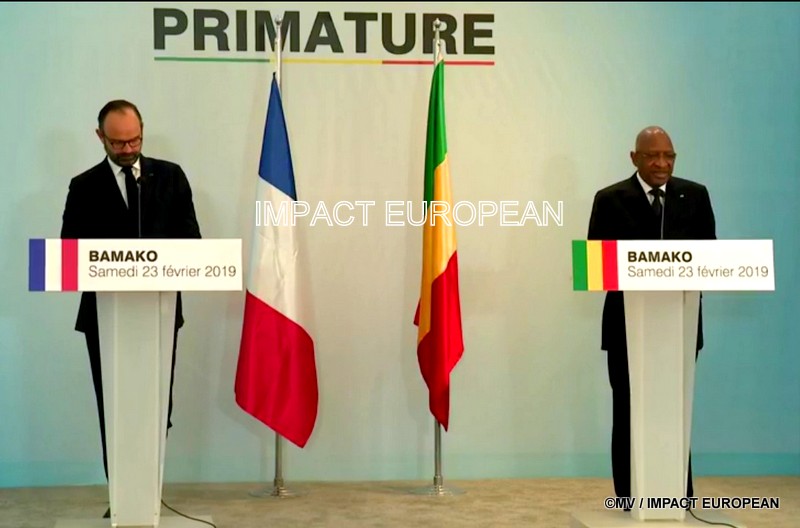
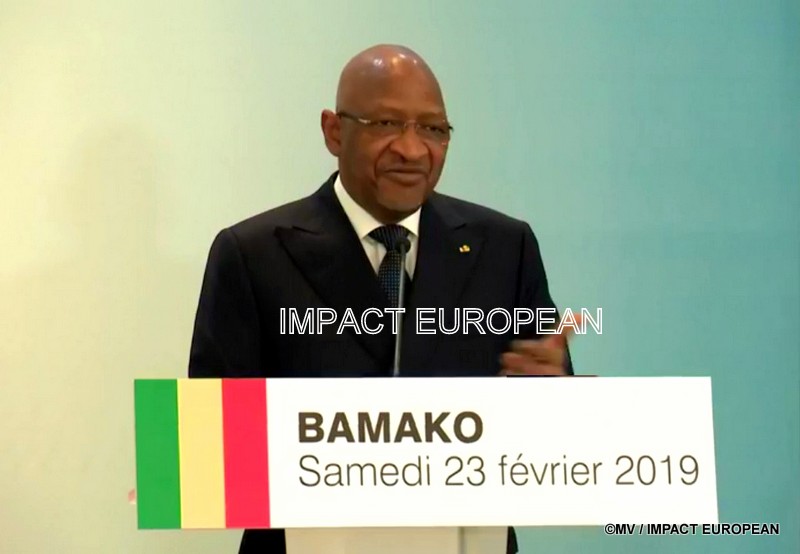
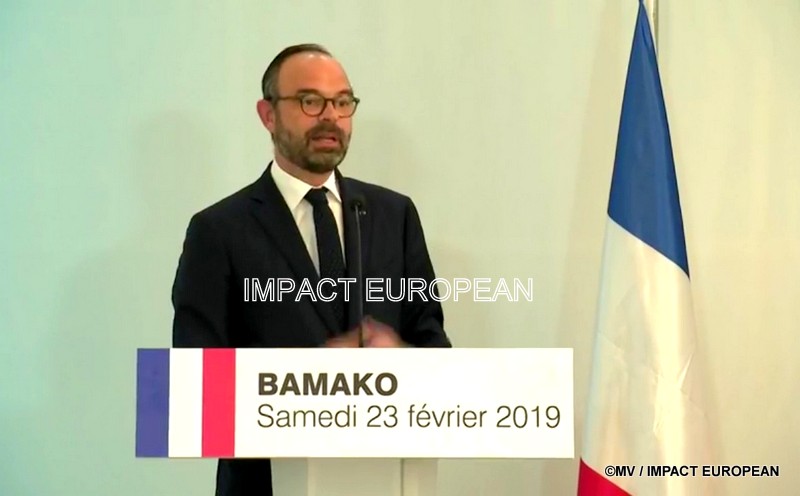
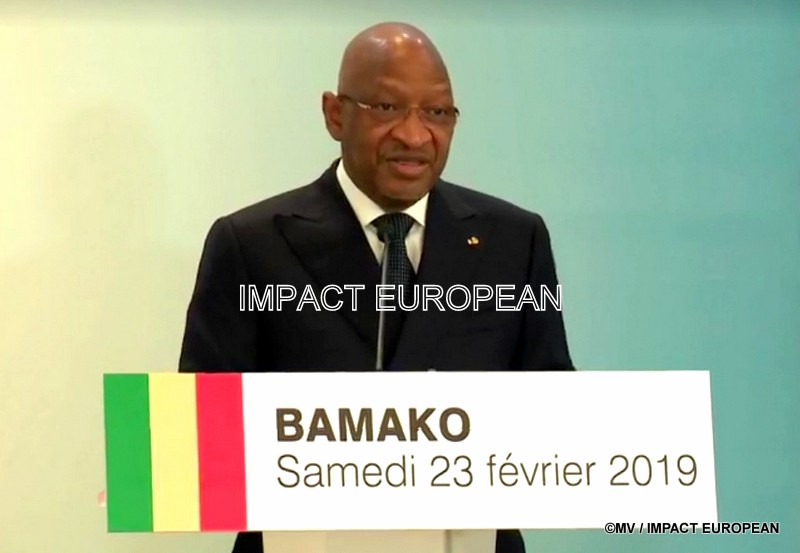
Plus d'histoires
Agricultural crisis: farmers bring protests to Paris over EU–Mercosur deal
In Paris, Ukraine and Its Allies Seal Security Guarantees for a Lasting Peace
Arrest of Nicolás Maduro: U.S. Justification, Global Reactions, and Accusations of Double Standards in International Law